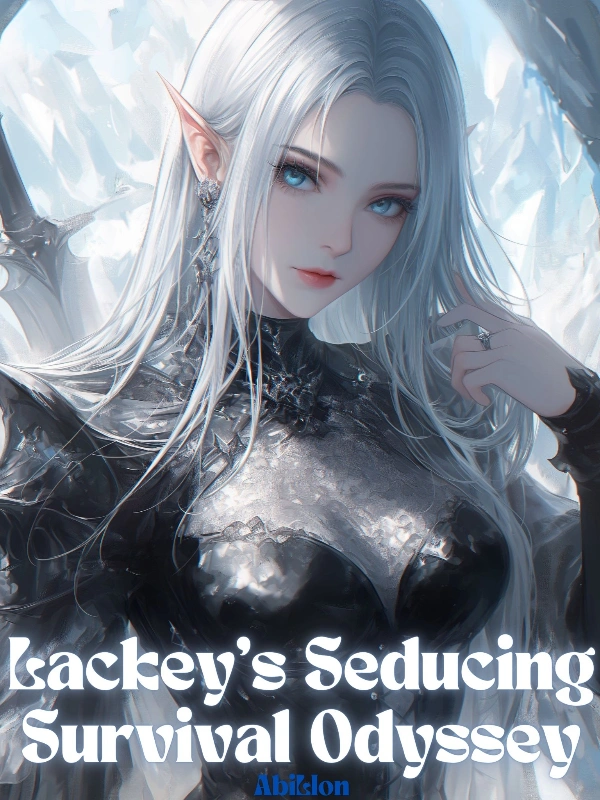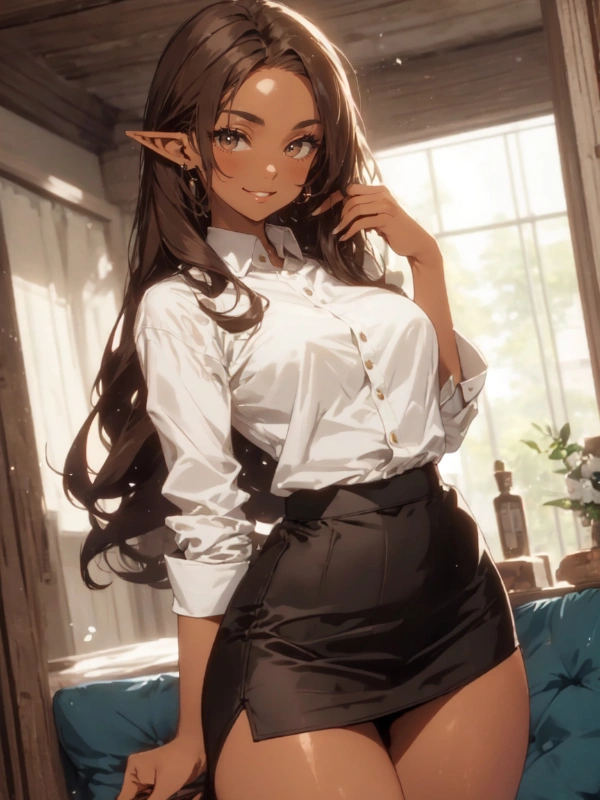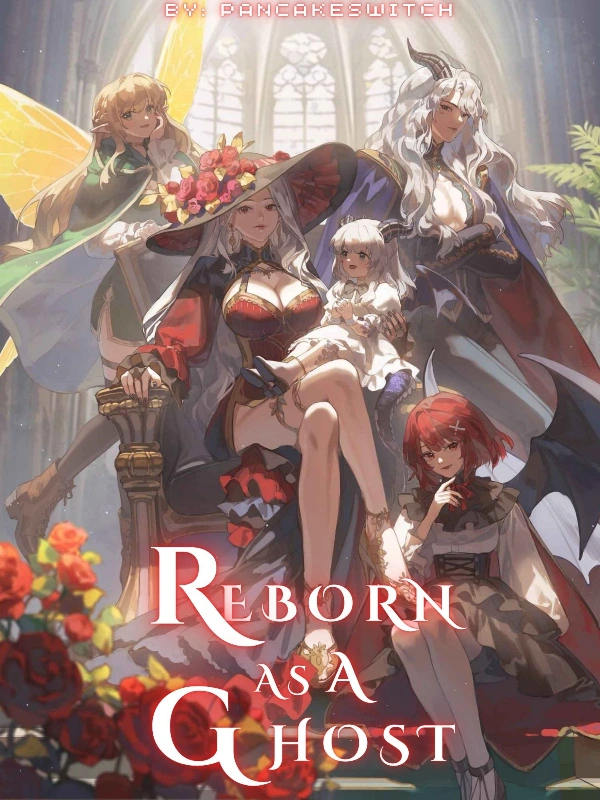Achilles’s True
The tension in the room had finally eased, the after-battle meeting of the Greek kings reaching its conclusion with little incident. Jason Spencer, had made his points, but Agamemnon, sitting upon his makeshift throne, barely regarded them as anything more than the naive ramblings of a young man. To Agamemnon, Jason and the others were nothing more than boys playing at war, unaware of the true weight that kings like him carried.
Agamemnon leaned back, his heavy golden armor gleaming under the dim light, his brow furrowed in thought.
“Why didn’t Achilles come?” Agamemnon’s gruff voice broke the momentary silence, his sharp eyes shifting toward Patroclus, who was preparing to leave the gathering.
Patroclus, poised at the edge of the fire’s glow, halted mid-step. His expression was calm but spoke volumes, a thin layer of amusement beneath his composed exterior. “You know how he is,” he replied, turning his gaze to Agamemnon. “Achilles doesn’t care for these tedious talks. But rest assured, when it’s time to fight, he’ll be there. You have nothing to worry about.”
Agamemnon scowled, his lips curling in disdain. He could never understand Achilles, the aloof warrior who refused to kneel to anyone, especially him. “I heard he’s gotten his hands on some beauty from Lyrnessus back at the camp,” Agamemnon muttered, his voice dripping with cynicism. “That’s probably where he’s been spending his time. Playing with her while we deal with the real matters of war.”
Patroclus’s lips curved into a subtle,
knowing smile, though he kept his
thoughts to himself. The truth was far
more complicated. Achilles had no love for
Agamemnon, nor for the sycophants
surrounding him, constantly praising him for deeds he hadn’t even accomplished.
Achilles despised these pompous gatherings where men like Agamemnon strutted about, feigning leadership. His hatred for the High King was no secret, and so he remained in his tent, unwilling to be commanded by a man he held in such low regard.
“Perhaps,” Patroclus said, tilting his head slightly, “but I’ve heard you, too, have a prize of
your own, King Agamemnon. A fair beauty from the temple of Apollo?” His tone was light, but the implication was
clear.
Agamemnon’s eyes flickered briefly with satisfaction, his mind already wandering to
Astynome-the priestess of Apollo who
now lay captive in his tent. She was a rare
prize, her beauty only made more
tantalizing by her sacred status. Agamemnon had claimed her as his spoil without a second thought.
“Astynome,” he said, the name rolling off his tongue with a possessive pride. “She’s mine by right. What does it matter if she prays to Apollo?”
There was a murmur among the kings,
their
eyes darting toward Nestor, the aged and wise ruler of Pylos, who had remained quiet until now. His expression was measured, but the concern in his eyes
not go unnoticed.
did
“I’ve heard,” Nestor began cautiously, “that
she’s a priestess of Apollo. Perhaps… some care should be taken.”
Agamemnon shot him a dismissive look, his
pride wounded by the suggestion that he should be cautious with what was rightfully his. “So what?” he barked. “She’s my
reward, and I have every intention of enjoying her. No god can change that. We are kings, Nestor. These are the rules of our world. Spoils go to the victor.” The silence that followed was heavy, the weight of Agamemnon’s words hanging in the air. He was right, in a way. On this blood-soaked continent, war governed all. Kings took what they wanted, and the gods rarely intervened in the affairs of men-at least, not openly. Still, Nestor’s hesitation lingered, the elder king unable to shake the
fear that Apollo might not take kindly to his priestess’s defilement.
Nestor lowered his head, choosing not to press the matter further. Agamemnon was stubborn, and there was little use in
arguing with a man so drunk on his own
power. But the feeling in the pit of Nestor’s stomach remained—a creeping dread that something was amiss.
Everything, it seemed, was progressing smoothly. Perhaps too smoothly.
But even as Nestor walked away, he
couldn’t help but feel a dark cloud looming on the horizon. Agamemnon might have been confident in their victory, and why
wouldn’t he be? They had the backing of Hera, Queen of the Gods, and the patronage of Athena, Goddess of War and
Wisdom. With divine favor, how could they lose?
The Greek camps sprawled across the
battlefield like a patchwork of disparate forces, each settled at a significant distance from the other. It was a sight that would make any observer question if they were truly allies. The lack of unity was palpable, a reflection of their fragmented origins-each army hailing from different
cities with long histories of rivalry. The Spartans and Athenians, notorious for their mutual disdain, kept their tents as far apart
as possible, their enmity unforgotten even in the face of a common enemy.
But they weren’t the only ones divided by
tension. The Heroes of Light, hailing from foreign lands, held nothing but contempt for the Greeks, who treated them with either jealousy or disdain. To the Greeks, the Heroes of Light were outsiders, tools for war, and nothing more. As a result, the heroes had chosen to remain distant, setting their camp apart, the air between them filled with unspoken resentment. On a hill a little further away stood the Myrmidons’ camp, known for its ruthless warriors. At the peak of the hill, Achilles’ tent loomed large, commanding an imposing view of the battlefield below. It was grand but stark, devoid of guards. Achilles had no need for protection; his
name alone struck fear into both allies and enemies alike.
Only Patroclus, Achilles’ cousin and closest companion, could enter the tent freely. But today, Patroclus was absent, and within the spacious confines of the tent, only two figures remained: Achilles and Briseis, his newly claimed spoil of war.
Briseis sat beside the bed, her hands bound
with rough ropes, her posture rigid and defiant. Her dark eyes burned with silent fury as they met Achilles’ cold, indifferent gaze. He stood not far from her, still clad in his bloodstained armor, the gore of battle fresh upon him. The blood that stained his armor was not only the blood of faceless enemies, but that of her people—men who had fought to defend their home, her brothers, perhaps, or childhood friends.
Her heart ached with the weight of all she had witnessed. Taken from her home in Lyrnessus, she had seen the cruelty of the Greek army firsthand, their monstrous treatment of her people. She had watched
helplessly as her city burned, its people butchered or enslaved, the cries of the dying still echoing in her ears. And now, she found herself a captive, claimed by the most feared warrior among them.
Despite the terror she had seen, Briseis
could not help but feel a twisted sense of relief. She hated herself for it, but in the deepest part of her heart, she knew that
her fate could have been far worse. Among the Greeks, there were those far more brutal, far more savage, who would have
treated her as little more than an object, a trophy to be abused and discarded. Achilles, at least, seemed to have some
measure of control, though she despised him all the same.
Achilles finally broke it, his voice deep and
measured. “Do you know who I am?” he
asked, his tone devoid of emotion as he began removing his blood-soaked armor, piece by piece. The metal clanked heavily
as he set it aside, his muscular frame now exposed to the cool air of the night. Briseis’s jaw clenched, her eyes still defiant
despite the fear that churned inside her. “Achilles, King of Phthia,” she answered, her voice steady though it trembled slightly at the edges. She knew exactly who he was. Achilles dipped a cloth into a nearby basin filled with perfumed water, the fragrant steam rising in soft curls. He began to
cleanse his face, wiping away the blood and grime that had accumulated over the course of the day’s battle. His movements
were slow, methodical, and weirdly careful.
“Also,” Achilles added, glancing briefly at her, “child of the goddess Thetis.” His words were not a boast, but a reminder. He
was no ordinary man, but a demigod. A
being born of both human and divine blood.
Briseis clenched her jaw, holding back a sharp retort. Achilles stood before her, radiating the arrogance she had heard so
much about. He was every bit as prideful as the tales had warned, but now that she had
a closer look at him, there was something
unexpected about the famed warrior. Without his armor, Achilles looked nothing like the brute she had imagined. He was lean, his muscles subtle and finely sculpted,
not the bulging mass of strength that Ajax or other Greek champions displayed. His skin was smooth and pale, almost glowing
in the dim light of the tent, and appeared unmarked, a strange contrast to the violent life he led. It was hard to believe that this
flawless skin belonged to the man who had felled countless foes in battle, a warrior
whom even the gods themselves whispered
about.
Briseis, despite her anger, found herself astonished. Was this truly the body of the strongest warrior of the Greek armies, the man whose very name struck terror into the hearts of his enemies? Even she, in some twisted sense, felt a pang of envy toward his unblemished skin and long, flowing red hair, which until now had been tied back but now spilled freely past his shoulders. The soft shimmer of gold in his eyes as he glanced at the mirror only
confirmed the divine blood that coursed
through him.
Magnificent. She had to admit it—he was truly magnificent.
Achilles turned back toward her with a
smirk then removed the top layer of the clothing with casual ease, baring more of his skin to the cool air.
Briseis instinctively averted her gaze in shame and discomfort. But something
caught her eye, just before she could fully
look away. A flash of something unusual.
Her brow furrowed as confusion overtook her, and her gaze hesitantly drifted back to him, curiosity overriding her instinct to look away.
What she saw made her breath catch in her
throat. Her eyes widened in disbelief, and
she froze, her mind racing to make sense of
what she was seeing.
Achilles’ chest was not what she had
expected. Beneath the smooth, almost otherworldly skin of his abdomen, there was a thin, white cloth bound tightly across
his chest. But what truly caught her attention was the unmistakable outline beneath that cloth-soft curves, the unmistakable shape of a woman’s chest, hidden beneath the fabric.
her eyes
Briseis slowly raised her gaze, tracing the elegant curve of the valley that
led down to those appetizing concealed
peaks, the delicate rise and fall of Achilles’
chest.
“A… A woman?”.



















